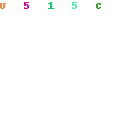It is often difficult as a parent to watch a child make a choice that could possibly be detrimental to his or her future. We can only hope that their limited life experiences and education will train them for real world situations, but there is no absolute guarantee. The real world is not always black and white, and as adults, we know that kids and teens will encounter many forks in the road that will put that experience and education to the test.
We anticipate that the relationships they form with others in high school will be lasting and worthwhile, and college will set the stage for their entry into true adulthood. They will become the sum of their experiences, and when they finally take that first step into the real world, it is our hope that they will have a wealth of experience and education to fall back on to help them navigate the ever complicated maze of business and personal success.
But will these experiences be enough to guide them to success? While many teens and young adults will make it through life's obstacles without experiencing any disasters, others will falter through a series of missteps and mistakes that could potentially have a huge impact on their futures. Not only will they have to choose a path best suited to their particular skill set, but they will also have to face a world that is constantly changing and evolving.
But once the door is open, will students have the ability to walk through it? The current world crosses many global boundaries, cultures, and ways of thinking. It is up to maturing young professionals to navigate the storm of technological advancement, globalization and potential. These skills are called, "21st-century skills" by some and anyone who wants to advance needs them to succeed.
21st-century skills refer to the real-life skills that professionals will need to advance in the world of today. Entrepreneurs, business men and women, and professionals must be able to communicate effectively with people from a range of social and cultural backgrounds and be adaptable to change. Open-mindedness is essential when it comes to maintaining a cutting edge amongst their peers.
Most importantly, 21st-century skills give professionals the ability to adapt and continue to be active learners wherever they go. Learning to appreciate cultural differences, alternate modes of thinking, and diversity of opinion will increase both innovation and quality of work. Having these skills at an early age will give students and potential professionals an advantage over their peers, and can be instrumental in problem-solving situations.
Every student with aspirations of a bright future wants to land the job of their dreams. With 21st-century skills at their disposal, they can ensure that they keep it, and maintain an edge over their colleagues. For so many students, that reality seems light years away; but as parents, we understand how crucial these skills are for success. Giving a child the skills they need to survive in the mercurial nature of the business world is something every parent should invest in.
We anticipate that the relationships they form with others in high school will be lasting and worthwhile, and college will set the stage for their entry into true adulthood. They will become the sum of their experiences, and when they finally take that first step into the real world, it is our hope that they will have a wealth of experience and education to fall back on to help them navigate the ever complicated maze of business and personal success.
But will these experiences be enough to guide them to success? While many teens and young adults will make it through life's obstacles without experiencing any disasters, others will falter through a series of missteps and mistakes that could potentially have a huge impact on their futures. Not only will they have to choose a path best suited to their particular skill set, but they will also have to face a world that is constantly changing and evolving.
But once the door is open, will students have the ability to walk through it? The current world crosses many global boundaries, cultures, and ways of thinking. It is up to maturing young professionals to navigate the storm of technological advancement, globalization and potential. These skills are called, "21st-century skills" by some and anyone who wants to advance needs them to succeed.
21st-century skills refer to the real-life skills that professionals will need to advance in the world of today. Entrepreneurs, business men and women, and professionals must be able to communicate effectively with people from a range of social and cultural backgrounds and be adaptable to change. Open-mindedness is essential when it comes to maintaining a cutting edge amongst their peers.
Most importantly, 21st-century skills give professionals the ability to adapt and continue to be active learners wherever they go. Learning to appreciate cultural differences, alternate modes of thinking, and diversity of opinion will increase both innovation and quality of work. Having these skills at an early age will give students and potential professionals an advantage over their peers, and can be instrumental in problem-solving situations.
Every student with aspirations of a bright future wants to land the job of their dreams. With 21st-century skills at their disposal, they can ensure that they keep it, and maintain an edge over their colleagues. For so many students, that reality seems light years away; but as parents, we understand how crucial these skills are for success. Giving a child the skills they need to survive in the mercurial nature of the business world is something every parent should invest in.
About the Author:
SuperCamp, the leading summer enrichment camp for kids and teens in the US, has been teaching 21st-century skills for over 27 years. Want to learn more ways SuperCamp can benefit your son or daughter in school and life? Discover 10 Ways to Study More Effectively with a free study skills report.




No comments:
Post a Comment